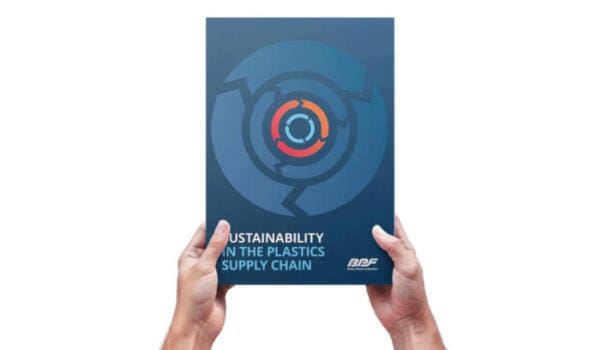The latest report by the British Plastics Federation aims to address some of the key sustainability issues in the plastics industry and to provide concrete examples and case studies highlighting the industry’s positive contribution towards sustainability.
The UK’s leading plastics trade association, the British Plastics Federation (BPF), has launched its first sustainability report looking at wider sustainability initiatives from across the industry. Sustainability in the plastics supply chain highlights the positive contribution the industry has made towards ongoing environmental issues, covering sustainable manufacturing practices, sector-specific contributions to sustainability and end of life management.
The new report builds upon a 2018 publication, Plastics: A Vision for a Circular Economy, and examines areas where the BPF and its members can positively influence sustainability outcomes and work towards achieving a UK circular economy. It shows how the plastics industry is contributing significantly to strengthening the market for secondary plastics materials, decreasing energy use in plastics processing, and setting new international standards such as the recently announced Publicly Available Specification (PAS 510) to prevent plastic pellet loss.
Despite the dual challenges of Brexit and the COVID-19 pandemic, the industry is determined to continue with its sustainability agenda, the report states. As well as offering insights into the industry, infographics and data, the report also features a number of case studies from across the supply chain, ranging from initiatives to reduce reliance on energy from the grid to innovations in sorting technology for plastic waste.
The report, ‘Sustainability in the Plastics Supply Chain‘ is free to download and is available to view on the BPF website, or can be downloaded directly here.
Chairman of the BPF Sustainability Committee, Jason Leadbitter states:
“Because the plastics industry has been under such public scrutiny, it has a far greater understanding of what sustainability means for an industrial material than any other sector. It has taken voluntary initiatives which have gone way beyond regulatory requirements. As an example, VinylPlus, a voluntary Europe-wide scheme addressing the sustainability of PVC building products such as windows, pipe systems and roofing, has been praised as a model of its kind.”
BPF Director-General, Philip Law, adds:
“It needs to be recognised that the UK plastics industry is a national economic strength. Most major sectors depend on plastics to a greater or lesser degree: retail, automotive, aerospace, construction and healthcare, to cite a few. Gains in the sustainability of plastics are gains for these businesses and for the UK economy and environment as a whole.
“This report highlights the vast amount of fantastic work that has been done in recent years and shows how plastic is an irreplaceable material if society is to continue to reduce its impact on the environment – especially if the UK is to achieve its target of essentially eliminating greenhouse gas emissions by 2050.”

British Plastics Federation
+44 (0) 20 7457 5000
Website
Email
